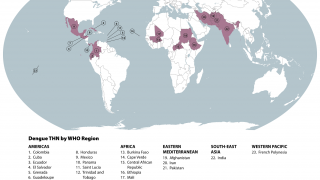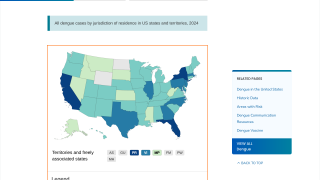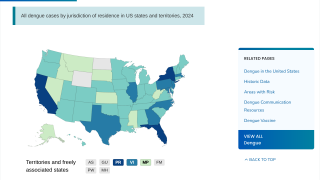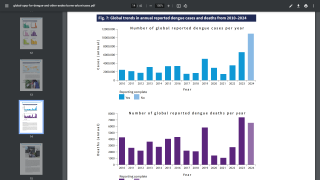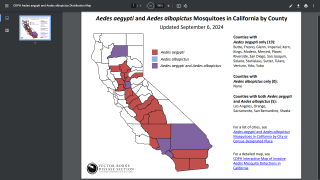Second Dengue Vaccine Progressing

The number of vaccines that prevent the dengue virus may be increasing soon.
While Zika has captured the headlines in 2017, the Dengue virus has proven to be the fastest spreading mosquito transmitted disease.
Dengue virus threatens up to 40% of the world’s population and is a leading cause of serious illness and death among children, according to the World Health Organization (WHO).
A live attenuated tetravalent vaccine against dengue was reported to be effective against all four serotypes of the virus, according to researchers.
Early results from a phase II study showed that children at four study sites in dengue-endemic areas who received the vaccine had significantly higher levels of antibody titers after 18 months.
The latest results showed that the vaccine candidate reduced risk of infection by 71%, compared with placebo.
These findings were published in the Lancet Infectious Diseases.
This vaccine candidate, TAK-003, is produced by Takeda Pharmaceuticals, is comprised of a molecularly cloned attenuated strain of dengue serotype 2 (DENV-2), and engineered strains of dengue serotypes 1, 3 and 4 (DENV-1, DENV-3 and DENV-4).
Previous phase I and phase II data found the vaccine was well-tolerated and immunogenic against all four dengue serotypes for children, ages 2 to 17 years.
Takeda Pharmaceutical expects results from the Phase III trial in 2018.
While Sanofi’s Dengvaxia was the first vaccine approved for dengue, it does not protect equally against the four different strains of the virus in trials.
The Dengvaxia vaccine is not recommended for use in children under 9 years of age and in special populations such as pregnant and lactating women, HIV-infected individuals, travelers, and healthcare workers.
Dengue viral infections can result in a range of symptoms.
Some people show no symptoms or only have mild signs of the disease. Other people develop severe complications.
Worldwide, millions of people are infected with dengue each year, with the most severe cases resulting in Hemorrhagic Fever/Dengue Shock Syndrome, which can cause blood vessels to leak and organs to fail.
This study found that a prior dengue infection actually enhances the immune system in a negative way, making the next dengue infection worse. The antibodies from the first infection may actually cause the second infection to be more serious.
Known as "breakbone fever" because of the intense joint pain, dengue has been causing problems for decades, maybe even centuries
Our Trust Standards: Medical Advisory Committee
- The global economic burden of dengue: a systematic analysis
- Takeda Initiates Global Phase 3 Clinical Trial (TIDES) of Dengue Vaccine Candidate (TAK-003)
- Takeda’s Dengue Vaccine Candidate Associated with Reduced Incidence of Dengue in Children and Adolescents; New 18-Month Interim
- Immunogenicity and safety of one versus two doses of tetravalent dengue vaccine in healthy children aged 2–17 years in Asia and



